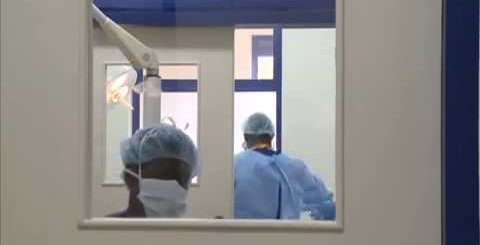Fasting is synonymous to health…!
In laboratory studies, time restriction of eating has been shown to increase life span, showing that intermittent fasting is a hot topic in the wellness industry.
However, how it affects the body on a molecular level and how those changes interact across multiple organ systems remains unclear. Now Salk scientists have shown in mice how time-restricted eating affects gene expression across more than 22 organs and the brain.
Gene expression is the process by which genes are activated and respond to their environment by forming proteins.
The findings, which were published on January 3, 2023 in Cell Metabolism, have implications for a number of health conditions where time-restricted eating has demonstrated potential benefits, including diabetes, heart disease, hypertension, and cancer. Satchidananda Panda Satchidananda Panda, a senior author and holder of the Rita and Richard Atkinson Chair at Salk, says, “We found that time-restricted eating has a system-wide, molecular impact on mice.”
The other group was restricted to eating within a nine-hour window per day.
Tissue samples from 22 organ groups and the brain were collected at different times of the day or night after seven weeks, and genetic changes were examined.
We were able to alter gene expression not just in the gut or the liver, but also in thousands of genes in the brain by changing the timing of food, Panda explains.
Nearly 40 percent of genes in the adrenal gland, hypothalamus, and pancreas were affected by time-limited eating. These organs are important for hormonal regulation.
Hormones coordinate different bodily and brain functions, and hormonal imbalance is associated with a range of diseases, from diabetes to stress disorders.
The results offer insight on how time-restricted eating can help control these diseases. Interestingly, not all aspects of the digestive tract were affected equally.
While genes in the upper two portions of the small intestine—the duodenum and the jejunum—were activated by time-constrained eating, the ileum at the lower end of the small intestine was not.
This finding opens a new area of study to discover how shift work, which disrupts our 24-hour biological clock (also called the circadian rhythm), impacts digestive diseases and cancers.
Panda’s team’s previous research showed that time-restricted eating improved the health of firefighters, who are often shift workers.
The researchers also found that time-restricted eating aligned the circadian rhythms of many organs of the body. Panda notes, “Circadian rhythms are everywhere in every cell.
We found that time-restricted eating synchronized the circadian rhythms so that there are two major waves: one during fasting and another just after eating.
Panda’s team will then investigate the effects of time-restricted eating on specific conditions or systems implicated in the research, such as atherosclerosis, a hardening of the arteries that is often a precursor to heart disease and stroke, as well as chronic kidney disease.







